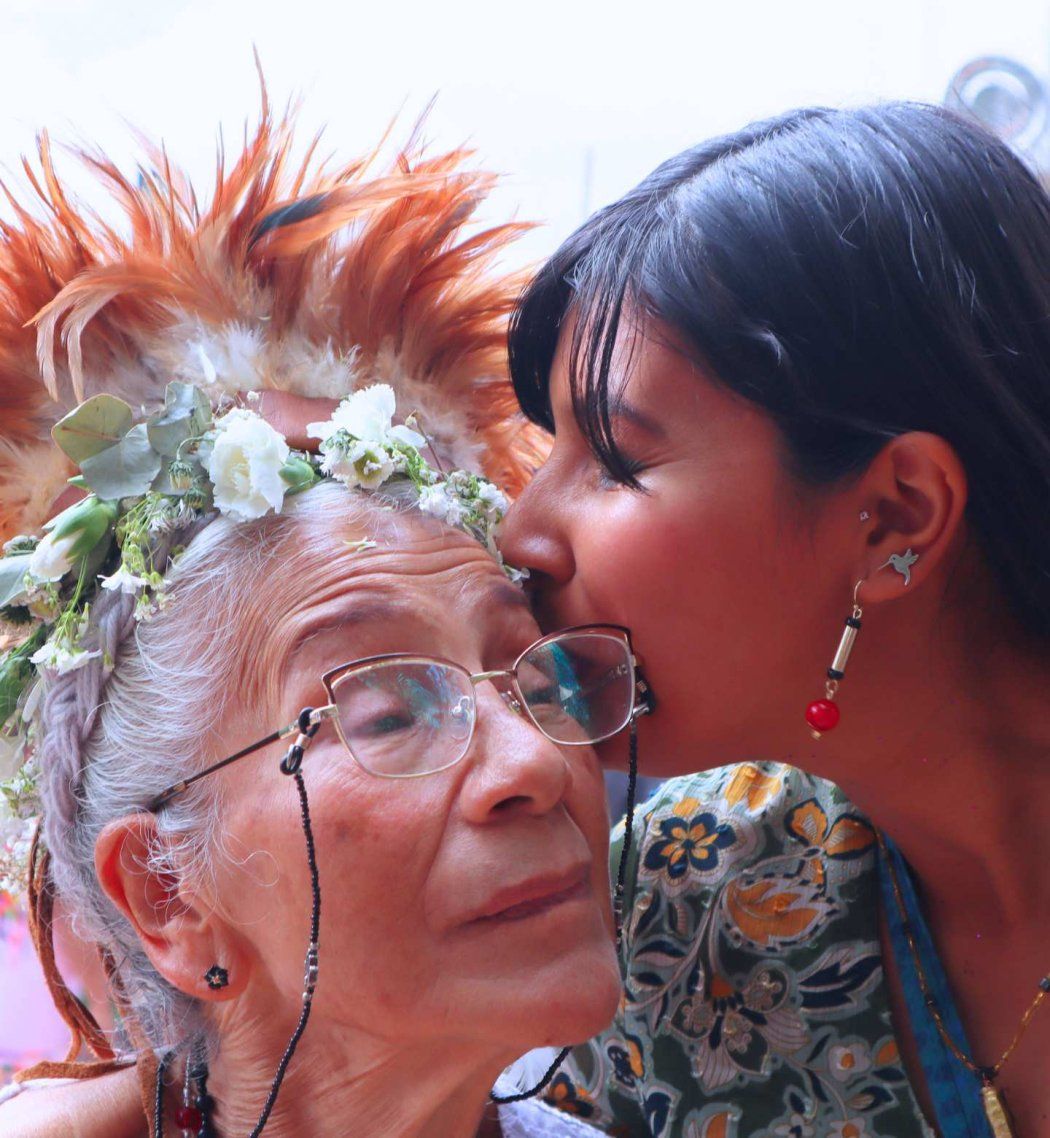UCSF has been honored as a “Top Producing Institution for Fulbright U.S. Students” by the U.S. State Department for the 2023-2024 academic year.
The designation — one of several times UCSF has made the prestigious list — was announced on Tuesday by the Bureau of Educational and Cultural Affairs and recognized in a letter from U.S. Secretary of State Antony Blinken to UCSF Chancellor Sam Hawgood.
“This achievement is a testament to your institution’s deep commitment to international exchange and to building lasting connections between the people of the United States and the people of other countries,” Blinken said.
The University has been named a “Top Producing Institution for Fulbright U.S. Students” in seven of the previous 13 years among special-focus four-year institutions.
The consistency of this honor means that our students are doing important work on a global scale that matters to people on the ground in those countries.”
“The consistency of this honor means that our students are doing important work on a global scale that matters to people on the ground in those countries,” said Holly Nigorizawa, UCSF Fulbright U.S. Student Program advisor and UCSF Career Advancement, International and Postdoctoral Services international programs director. “Getting the recognition validates the work with global impact we’re doing at UCSF.”
‘It's just a huge privilege’
This year’s UCSF Fulbright scholar is Giselle Pérez-Aguilar, a fourth-year PhD student and licensed clinical social worker raised in the Boyle Heights neighborhood of Los Angeles. She's in the Sociology Doctoral Program in UCSF School of Nursing’s Department of Social and Behavioral Sciences.
As part of the Fulbright program, Pérez-Aguilar is currently in Oaxaca and Chiapas, Mexico working on her dissertation in data collection through the IndigiTrauma Healing study. This project explores how Indigenous-rooted traditional healing practices support undocumented migrants in overcoming feelings of health unworthiness developed through past trauma.
“In terms of ‘health unworthiness,’ I would say it’s an internal sense of not being worthy of wellness and good health, which impacts not only how we take care of ourselves but also whether we access health services, advocate for ourselves during health care decisions, and take up space in health care spaces,” she said. “Such an internal sense is perpetuated by systems of oppression and structural forms of violence.”
Pérez-Aguilar, whose parents both immigrated from southern Mexico to the U.S. before she was born, first got the idea for the project last year when she was working with patients trying to overcome intergenerational trauma in San Francisco’s Mission District.
“I noticed the Western approaches were limited,” she said. “They were helpful, but there were some things that were missing. I was working in a space where I could incorporate some traditional healing approaches. When I began to do so, I saw the impact it had on those patients.”
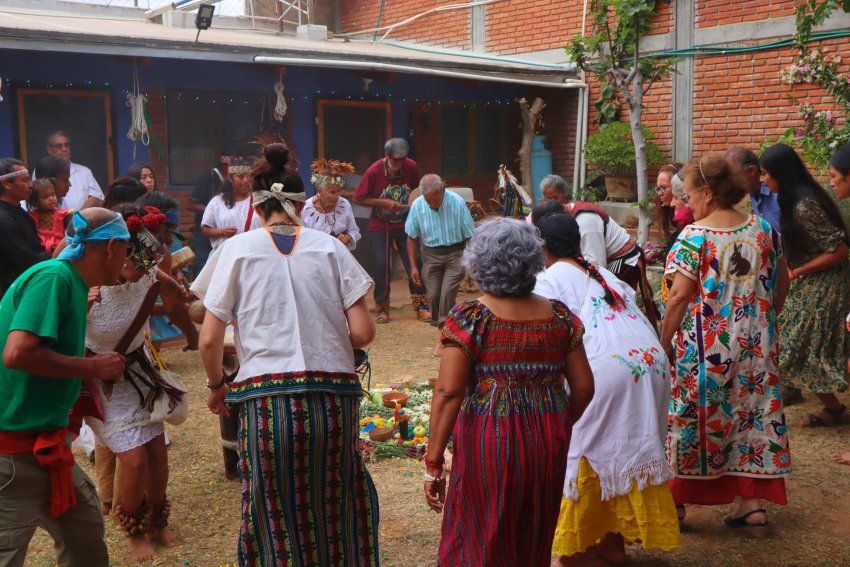
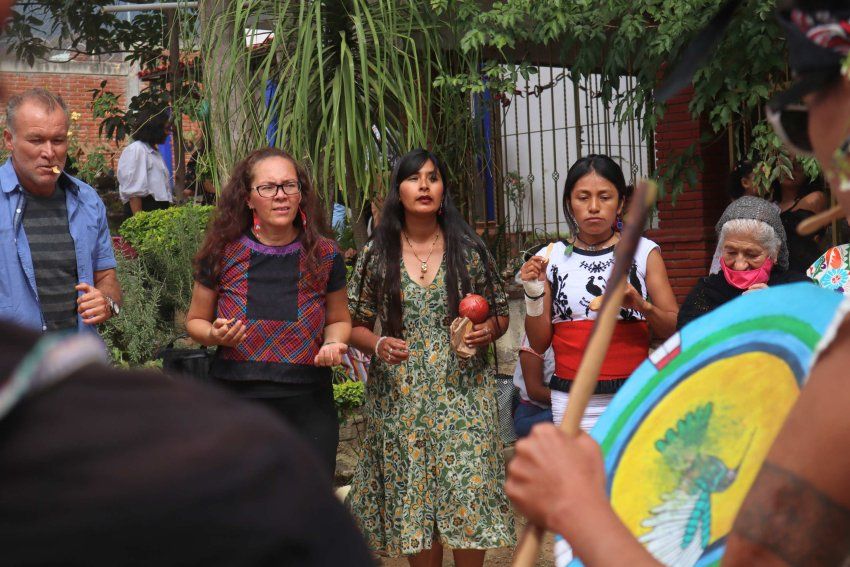
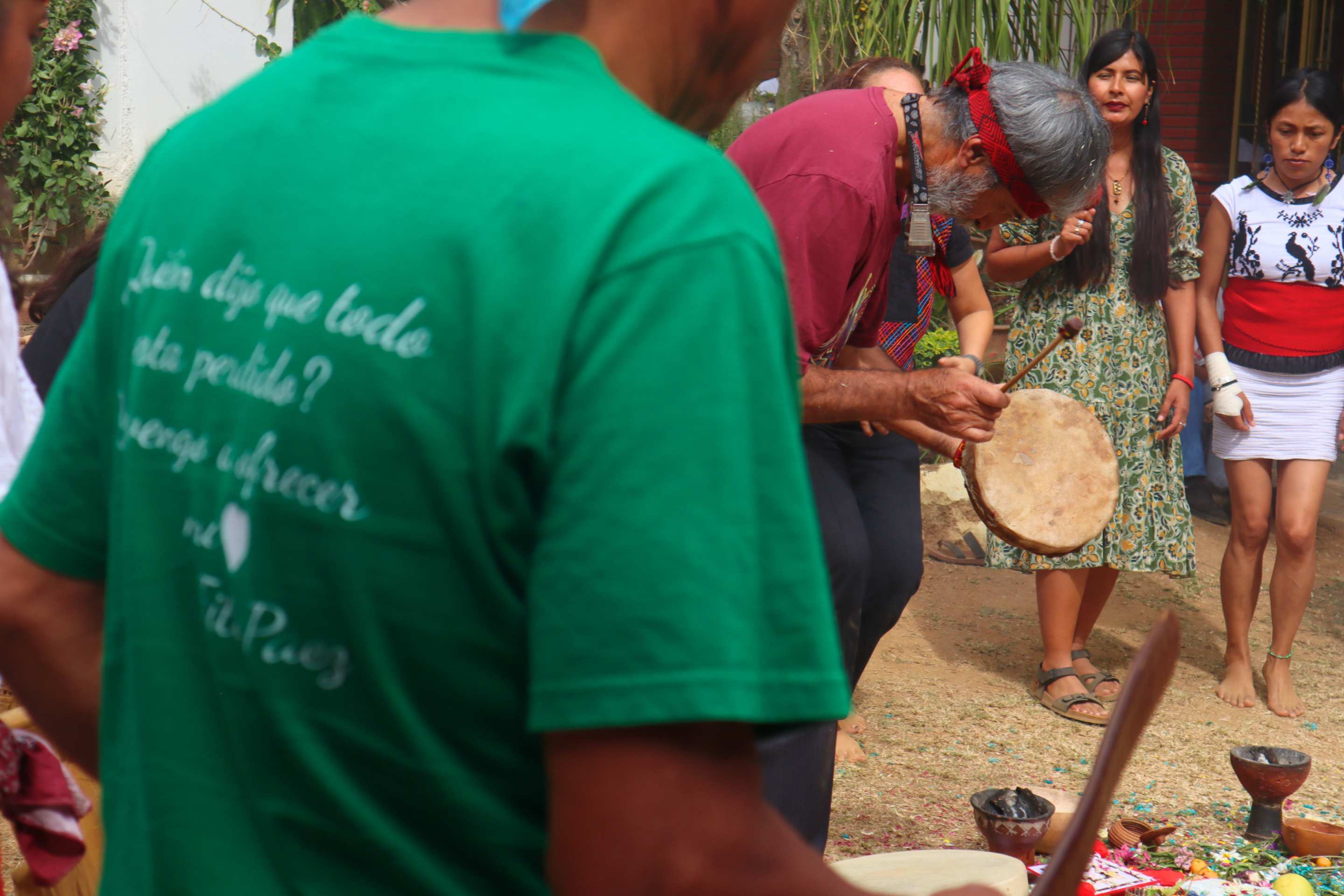
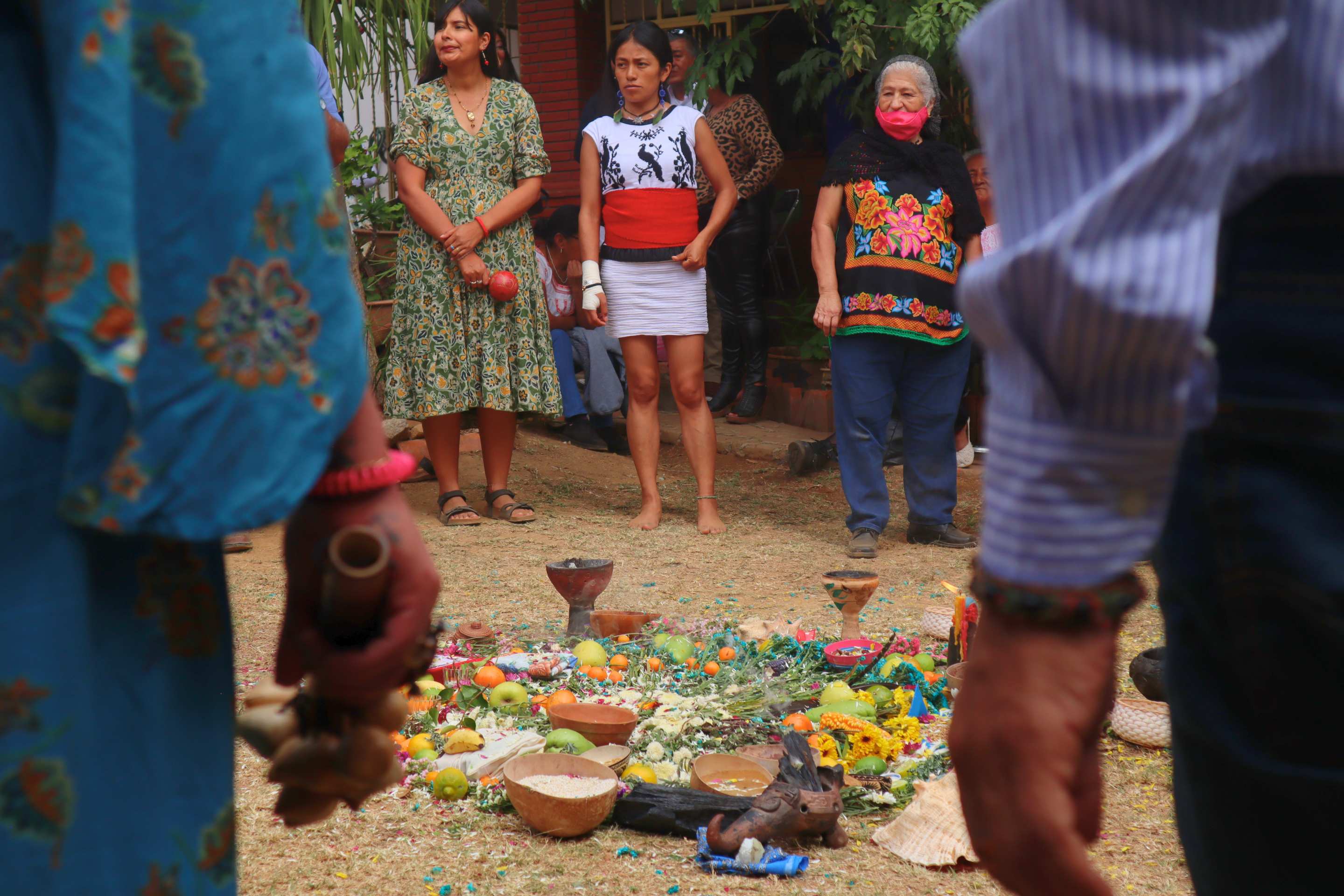
Pérez-Aguilar, UCSF’s 2023-2024 student Fulbright winner, participates in a “danza ancestral,” a traditional offering or prayer using movement and the sound of drums.
That formative experience, combined with a family history in traditional healing and complicated personal healing journey of her own, was enough to push Pérez-Aguilar to apply for the Fulbright scholarship to continue her work.
Pérez-Aguilar was able to use advice from Nigorizawa, her mentors in the Sociology Doctoral Program, a former Fulbright grantee, and a UCSF-based Fulbright advisory board in working her way through the extensive application process, which included letters of recommendation, personal statements, and, of course, a detailed description of her dissertation.
“They were very supportive and offered helpful feedback,” she said.
When it came time to learn whether she was accepted, Pérez-Aguilar knew exactly who to call. “I just remember thinking, ‘Take deep breaths. You’re going to be okay,’” Pérez-Aguilar said, holding back tears. “When I saw that I got it, I was really happy and emotional. I called my mom to share the news. It was very emotional. It’s just a huge privilege being [in Mexico] and being able to connect with my Zapotec ancestors.”
After her Fulbright program ends in June, Pérez-Aguilar plans to continue her work by building an interactive network of traditional healers across international lines.
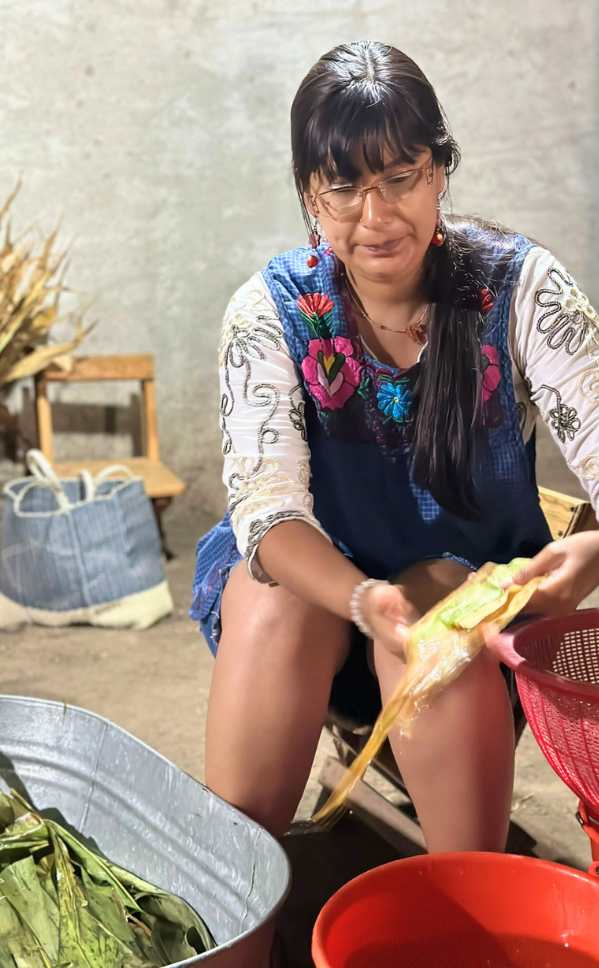
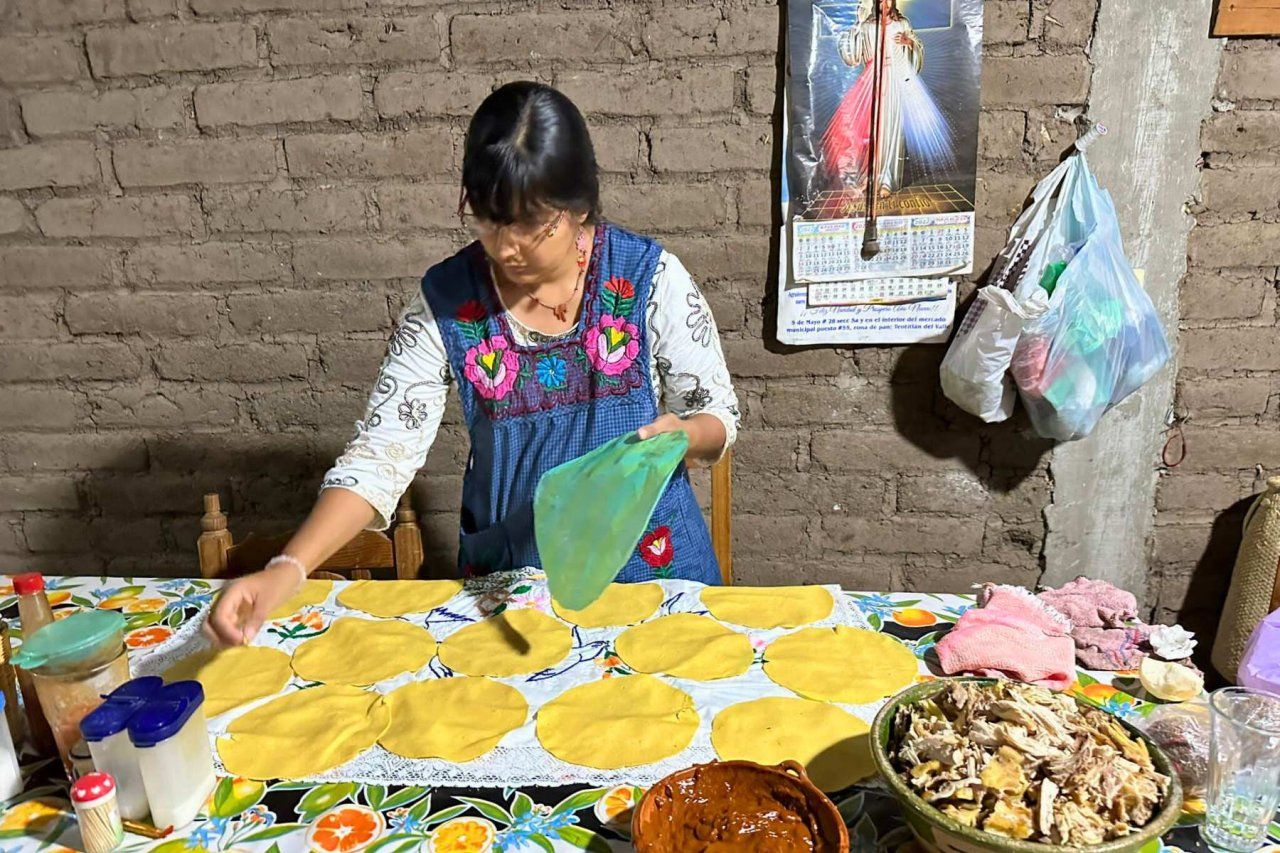
Pérez-Aguilar cleans milpa leaves (left) and makes amarillito and chicken tamales (right) during a Dia de Muertos celebration, part of her work with a traditional healer and their family.
A Fulbright tradition
Other UCSF student Fulbrighters have completed a variety of health care research and medical projects in international locations over the years, including India, France, England, central America and Kenya.
“When students go abroad, they’re not only representing the United States, they’re also representing UCSF,” Nigorizawa said. “Our academic rigor is built in ways that we can help and support projects that are happening abroad.”
At UCSF, Fulbrighters come from all levels of experience, academics and research.
While Pérez-Aguilar is part of the Fulbright U.S. Student Program, many seasoned faculty have also received Fulbright scholarships: Bob Wachter, MD, chair of the UCSF Department of Medicine, Ralph Gonzales, MD, MSPH, associate dean for clinical innovation and chief innovation officer for UCSF Health, Julene Johnson, PhD, professor of cognitive neuroscience at the UCSF Institute for Health & Aging, and Steve Pantilat, MD, director of the UCSF Health Palliative Care Program.
These scholars are global representatives of the University’s excellence and further our mission of advancing health worldwide."
“I am extremely proud of our UCSF Fulbright scholars, past and present, and all that they have accomplished through collaboration with communities around the world,” said Catherine Lucey, MD, MACP, UCSF executive vice chancellor and provost. “These scholars are global representatives of the University’s excellence and further our mission of advancing health worldwide.”
The Fulbright Program is the U.S. government’s flagship international academic exchange program, funded through an annual appropriation from Congress to the U.S. State Department. Participating governments and host institutions, corporations and foundations around the world also provide direct and indirect support to the program.
Since its founding in 1946, the Fulbright Program has provided more than 400,000 talented and accomplished students, scholars, teachers, artists, and professionals of all backgrounds with the opportunity to study, teach, and conduct research abroad.
Fulbright alumni have included 41 heads of state or government, 62 Nobel laureates, 89 Pulitzer Prize winners, 80 MacArthur Fellows, and countless leaders and changemakers around the world.
